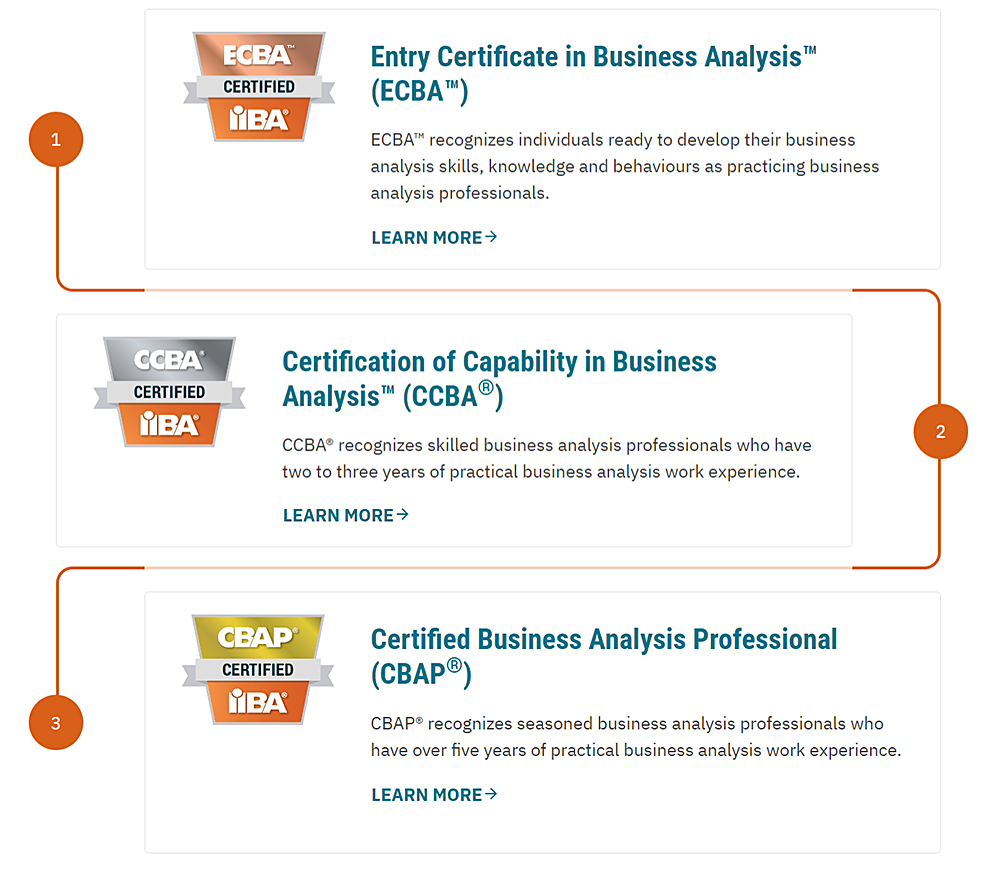Unable to find what you're searching for?
We're here to help you find itEntry Certificate in Business Analysis™ (ECBA™) Course Overview

The Entry Certificate in Business Analysis™ (ECBA™) course is a foundational program designed for individuals seeking to break into the field of business analysis. It covers the fundamental aspects of business analysis as outlined in the Business Analysis Body of Knowledge® (BABOK® Guide), ensuring that learners grasp the core principles and practices essential to the role of a business analyst. Throughout the modules, participants learn various techniques and concepts such as Requirements management, Elicitation, analysis, and Solution evaluation. Gaining an ECBA certification can be a significant stepping stone for professionals, as it demonstrates their commitment to the field and provides them with the necessary skills to contribute to business analysis projects. The ECBA certification cost is seen as an investment into a burgeoning career, and the ECBA certification itself is widely recognized in the industry, potentially opening doors to new job opportunities and career growth.
Purchase This Course
USD
View Fees Breakdown
| Course Fee | 2,375 |
| Exam Fee | 400 |
|
Total Fees (without exam) |
2,375 (USD) |
USD
View Fees Breakdown
| Course Fee | 1,850 |
| Exam Fee | 400 |
|
Total Fees (without exam) |
1,850 (USD) |
USD
View Fees Breakdown
| Flexi Video | 16,449 |
| Official E-coursebook | |
| Exam Voucher (optional) | |
| Hands-On-Labs2 | 4,159 |
| + GST 18% | 4,259 |
|
Total Fees (without exam & Labs) |
22,359 (INR) |
|
Total Fees (with Labs) |
28,359 (INR) |
Select Time
Select Date
| Day | Time |
|---|---|
|
to
|
to |
♱ Excluding VAT/GST
You can request classroom training in any city on any date by Requesting More Information
♱ Excluding VAT/GST
You can request classroom training in any city on any date by Requesting More Information

Praveen Kumar
1. Certification of Competency in Business Analysis (CCBA) Entry Certificate in Business Analysis™ (ECBA™) and Certification of Capability in Business Analysis (CCBA) are courses focused on business analysis Read More
Entry Certificate in Business Analysis™ (ECBA™) and Certification of Capability in Business Analysis (CCBA) are courses focused on business analysis. Both cover similar topics such as business analysis planning, requirements elicitation, and analysis. ECBA is an entry-level certification, while CCBA is a more advanced certification that requires more experience. The choice between them depends on personal proficiency, certification goals, and industry recognition.
| Exam Component | Details |
|---|---|
| Exam Name | Entry Certificate in Business Analysis™ (ECBA™) |
| Exam Type | Multiple Choice Questions (MCQs) |
| Total Questions | 50 |
| Passing Score | Not publicly disclosed |
| Exam Duration | 60 minutes |
| Language | English |
| Exam Provider | International Institute of Business Analysis (IIBA) |
| Exam Registration | Through IIBA's official website |
| Certification Validity | Lifetime |
| Recommended Training | IIBA Endorsed Education Provider (EEP) courses or IIBA Business Analysis Body of Knowledge (BABOK® Guide) study |

The Entry Certificate in Business Analysis™ (ECBA™) course is designed for aspiring professionals seeking foundational business analysis skills.
The ECBA™ course empowers participants with fundamental business analysis concepts, practices, and the architecture of BABOK® Guide for effective business solutions.
Suggestion submitted successfully.





